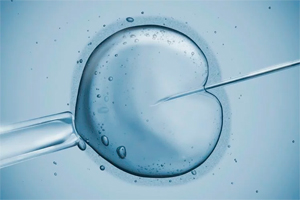 A 60-year-old woman who wants to use her dead daughter’s frozen eggs to give birth to a grandchild has won a legal battle over what constitutes medical consent.
A 60-year-old woman who wants to use her dead daughter’s frozen eggs to give birth to a grandchild has won a legal battle over what constitutes medical consent.
The court of appeal has ordered the Human Fertilisation and Embryology Authority (HFEA) to reconsider the application, opening the way for fertility treatment in the United States.
The woman, whose daughter died of bowel cancer in 2011, had asked three judges to allow her to carry out the dying wishes of her “much-loved and only child”. The family have remained anonymous; the court identified the mother as Mrs M.
Her daughter, who was 28 when she died, spent most of the last five years of her life in hospital. She wanted to have IVF treatment but became too ill. At one stage, she suggested having her ovaries transplanted into her mother. Three eggs were eventually removed and stored.
The legal problem the HFEA confronted, the judgment explained, “was that while [the daughter] consented to treatment for egg removal and storage (including storage after her death) and also to the use (other than for research purposes) of her eggs after her death, she never completed any form giving details of the precise use that is now proposed”.
Lawyers for the mother and her husband, referred to only as Mr M, said that if they did not overturn the refusal for treatment, the eggs would be allowed to perish.
Giving judgment, Sir James Munby, who is president of the family division of the high court, Lady Justice Arden and Lord Justice Burnett granted the parents’ appeal. Neither Mr or Mrs M were in court for the ruling.
Jenni Richards QC, for the parents, had argued that it was unreasonable to expect the daughter to do more when she had been battling for five years against what was to be a terminal illness. “It would be wrong to use the consent form that she was not given to defeat [her] wishes as expressed on the form she did sign and subsequently in conversation with her mother and friends,” the court was told.
The judges heard that the daughter, referred to only as A, was desperate to have children and asked her mother to “carry my babies”. Her parents launched legal action against the HFEA’s refusal in September 2014 to allow them to take their daughter’s eggs to a US fertility treatment clinic to be used with donor sperm.
The judgment noted that the mother’s evidence “is that she was certain that [her daughter] believed that she had signed all the necessary forms to authorise her mother to carry her child after her death and that [she] was not given any other form to sign apart from a form authorising use for research, which [she] declined to sign.
“[The mother] also said that a child was the one thing that [her daughter] wanted more than anything else in the world. She recounted a conversation involving a newly pregnant cousin, visiting [her daughter] in hospital, when [she] said that she already had her babies: ‘They are just on ice, aren’t they, Mum?’”
In an earlier judgment by a lower court, Mr Justice Ouseley ruled that the independent regulator had been entitled to find the daughter had not given the required consent and declared there had been no breach of the family’s human rights.
Catherine Callaghan, counsel for the HFEA, said that it was natural to feel sympathy for the parents’ loss and for their wish to keep their daughter’s memory alive.
The court’s role, however, was not to decide whether it would have permitted the mother to undergo fertility treatment using her deceased daughter’s eggs and donated sperm.
Its task was to determine whether Mr Justice Ouseley erred in concluding that the HFEA’s statutory approvals committee acted lawfully and rationally in exercising its broad discretion to refuse to authorise export of the frozen eggs.
Giving the court’s ruling, Lady Justice Arden said the challenge succeeded at three levels: “First, there was on the face of it the misstatement of certain of the evidence about [the daughter’s] consent by the [HFEA] committee.
“Second, even if what the committee meant was that there was a lack of effective consent because the appellants could not show that [the daughter] received information on certain matters, the decision was flawed because the committee pointed to the lack of certain evidence without explaining why [she] needed to receive that information and give that consent.
“The third level is that the committee did not ask the prior question of what information the Human Fertilisation and Embryology Act required to be given to [the daughter] in the circumstances of her case.”
The judge said the decision must be set aside and remitted to the statutory approvals committee of the HFEA for further consideration of the export application.
(Published by The Guardian - June 30, 2016)